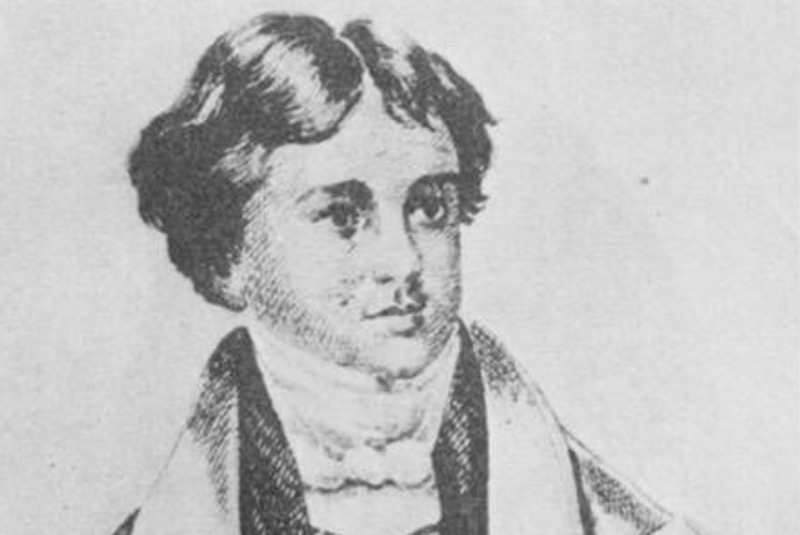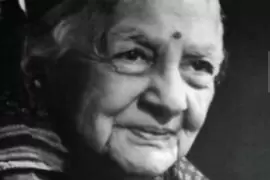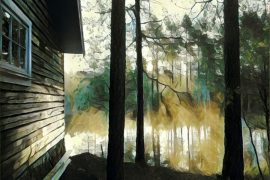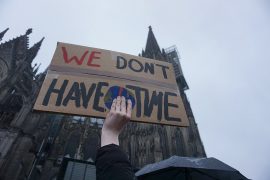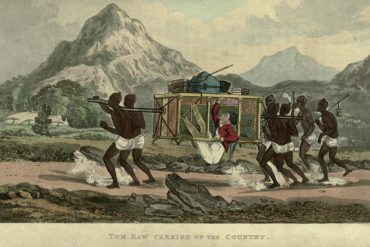How intense is this flame!… The fire of his thought has spread into their [his students’] untamed hearts.
A twenty-two-year-old professor at the Hindu college had so much influence on his pupils that it threatened the institute and even the parents of these students. These children were beginning to question everything, including the age-old customs of the society in Bengal. The children came together and formed the Young Bengal, or Derozians, as they reflected the teachings of their revolutionary teacher, Henry Louis Vivian Derozio.
Derozio was an intelligent kid himself and did not grow up to abide by social reforms. He was born on 10 April 1809 to an Indo-Portuguese father and a British mother. Not only did they live in Calcutta, in the central British Colony, but they were also part of a wealthy society, ensuring the best education for Derozio.
Derozio attended Dharmatala Academy and studied under David Drummond, a Scottish teacher and scholar of the classics, mathematics, and metaphysics. Drummond was known to be “less in the grammatical niceties and distinctions of verbal criticism” and a great free thinker. Drummond has been said to influence his students, and Derozio affirmed that belief.
Derozio claimed that his schooling was not usual for Indian schools, as students of diverse backgrounds and social classes studied together. The school had a liberal approach to teaching. Drummond had given close mentorship to Derozio when he attended the school between the ages of six and fourteen.
In eight years, he provided Derozio with all the support he might have needed to develop his intellect. While Derozio would not write poetry till later, he was very well-read in English literature. There ‘were two places in India where the British press’s most recent works could be found. “These were the shelves of the most enterprising booksellers and the library of Derozio.”
Many news journals, such as the India Gazette and the Calcutta Journal, noted Derozio’s academic success. He also received many academic prizes and participated in theatrical performances. Drummond remained a close follower of Derozio’s career and shared a strong relationship.
After leaving school, Derozio began working as a clerk at Messrs. J. Scott and Company. His father had worked there for a long time, holding a reputable position. Derozio soon realised that a desk job was not what he wanted for his life. Within two years, he shifted to Bhagalpur to work at his uncle’s indigo factory.
Located by the river Ganga, Bhagalpur inspired Derozio’s intellect. He wrote his most famous poem, the Fakir of Jungheera, a 2,050-line poem. The poem was directly inspired by the Fakir-inhabited rock of Jungheera, which he found utterly romantic.
Life at Bhagalpur inspired much more poetry. He also fell for a lady but had to part ways due to circumstances. He was surely affected by this since he refused to marry despite many attempts from his sister to convince him otherwise.
Derozio sent a collection of his poems to Dr. John Grant of the Indian Gazette. Grant encouraged Derozio to publish his separate volume. In 1827, at seventeen, the young man returned to Calcutta and became famous.
In Calcutta, Derozio embraced the profession of teaching and literature. He took up the post of Assistant Editor at the Indian Gazette beside Dr John Grant. He was also the editor of the Calcutta Literary Gazette and a contributor to the Calcutta Magazine, the Indian Magazine, the Bengal Annual, and the Kaleidoscope. He even worked as an assistant master at the Hindoo College.
While there was no denying his genius, as acclaimed by many of his contemporaries like Meredith Parker, D. L. Richardson, and David Hare, his writings did find some backlash in public. Some articles in the Indian Gazette became infamous for being “flippant and pretentious,” although cleverly written, were accused of being filled with “coxcombry and conceit that injured the effect of much truth and originality of observation.”
As a master of English literature and history at the Hindu College, Derozio was a passionate teacher who formed strong connections with his students. It is said that no one could influence his pupils the way Derozio did, before or after his term at the Hindu College.
Just as his teacher encouraged him, Derozio pushed every student to become a free thinker, independent from the shackles of social norms. Under his guidance, the students formed a club called the Academic Association, which met outside the school at night to discuss their papers and learn how to debate and form strong arguments.
Poetry and philosophy were major themes of these meetings, but since the meetings took place outside the college’s premises, they allowed a certain freedom of discussion that could not be attained in classrooms. Topics of critical thinking, such as free will, freedom, religion, patriotism, idol worship, etc., stirred up the hearts of many youths; however, given the conservative nature of society in Calcutta at the time, parents of the children did not approve of open discussions on religion.
Derozio’s expansive knowledge of books, his friendly and generous nature amalgamated with his sense of humour, and clear morals of truth and humility made him very popular amongst students. He had strongly expressed his love for India as he expresses in the following lines:
My country!
In thy day of glory past,
A beauteous halo circled round thy brow.
Many of his pupils had formed a group and questioned orthodoxy, which irritated many of the orthodox leaders. Consequently, in April 1831, a meeting was called to remove Derozio from his post as a teacher.
One of the major decision-makers was Ram Comul Sen, the grandfather of the well-known Keshub Chunder Sen, the late leader of the Brahmo Samaj. Ram Comul Sen was an influential figure and a great friend of orthodox Hindus and viewed Derozio with contempt.
He drew up the charges against Derozio, blaming him for having “injured their [students’] morals” and proved to be “destructive to their moral character and to the peace of society.” He conveyed that Derozio was “the root of all the evils and cause of public alarm” and urged him to be removed from the Hindu College and the lives of his pupils.
The decision was made against Derozio, and he was forced to hand in his resignation. In a letter, H.H. Willson, a part of the panel, wrote to Derozio. He wanted to clarify what Derozio had been charged with and asked if he promoted incest and atheism and encouraged students to fight with his parents. In a reply sent back, Derozio said:
That I should be called a sceptic and infidel is not surprising, as these names are always given to persons who think for themselves in religion…
Not soon after, at the age of twenty-three, Derozio contracted and succumbed to cholera. What he had taught in life took fruition after his death. His contribution to poetry is a marker of the beginning of English poetry in India.
The Academic Association continued to function under David Hare’s guidance. After his death, his students, who were called Derozians, became important contributors to the country’s social, cultural, and educational spheres, and Derozio became a metaphor for the Bengal-Indian Renaissance.
-30-
Copyright©Madras Courier, All Rights Reserved. You may share using our article tools. Please don't cut articles from madrascourier.com and redistribute by email, post to the web, mobile phone or social media.Please send in your feed back and comments to [email protected]

